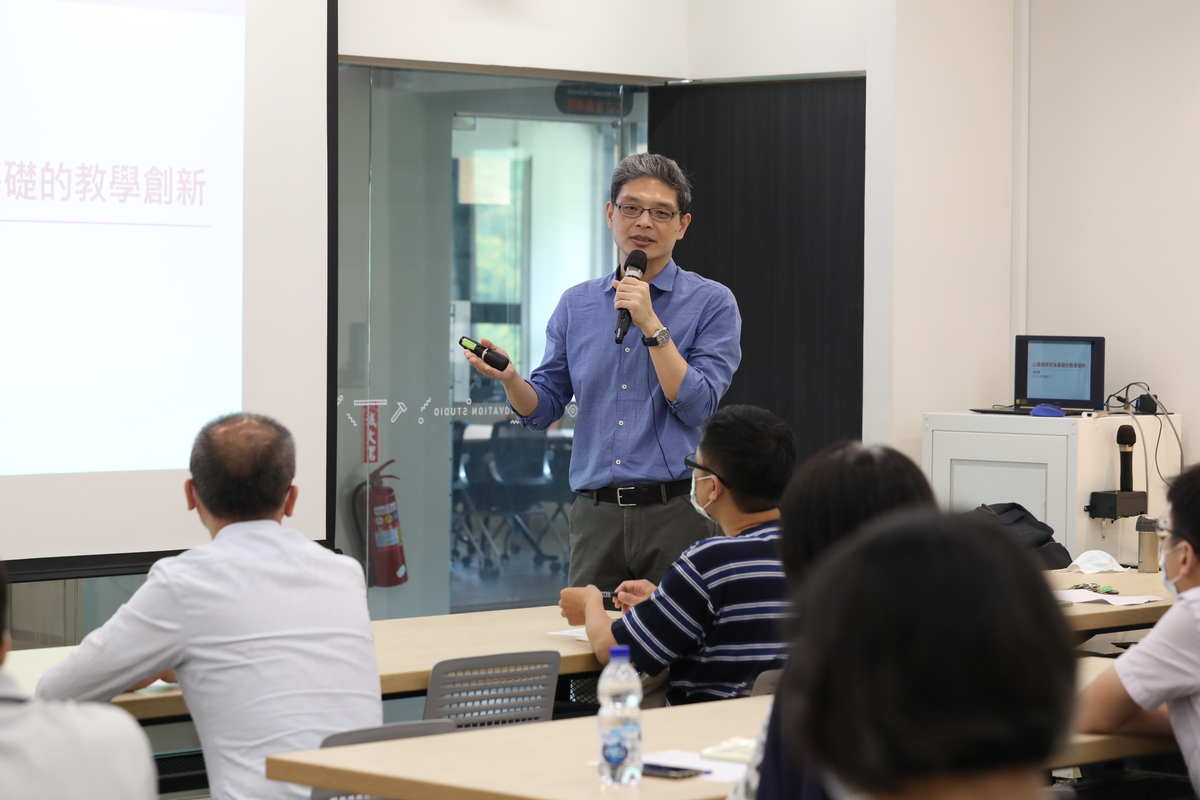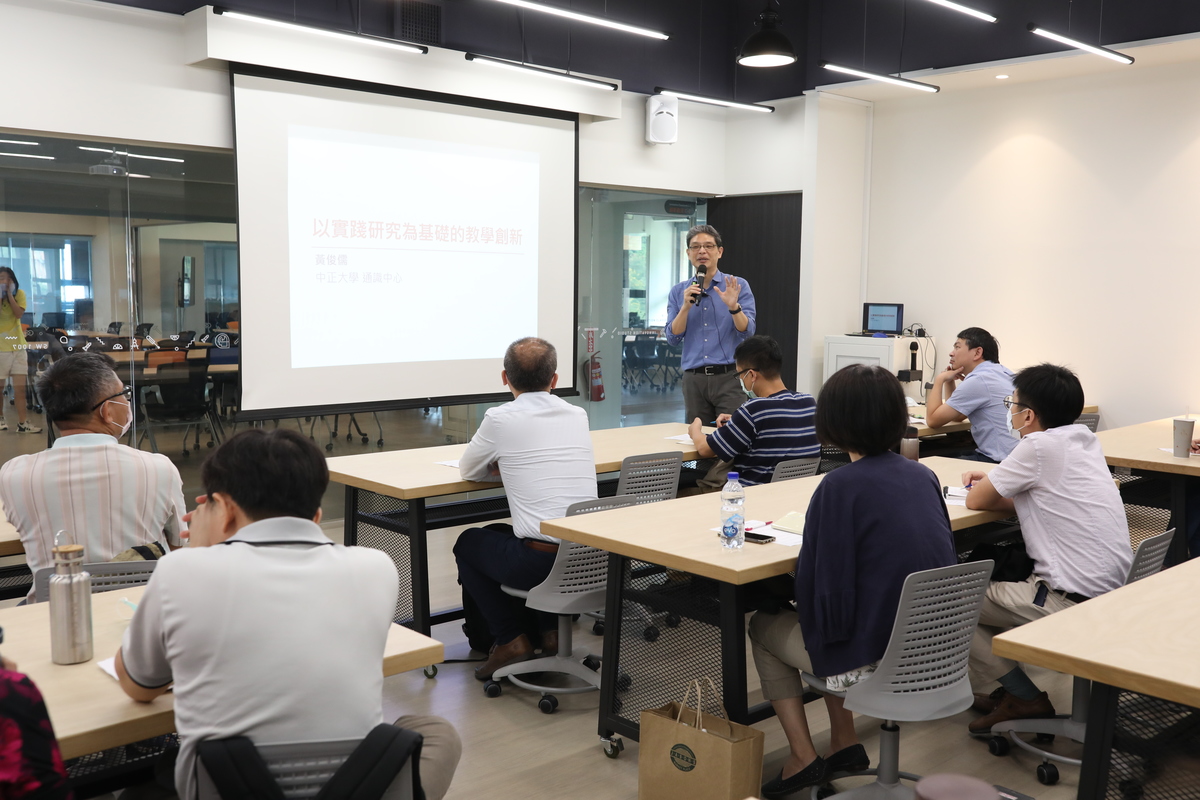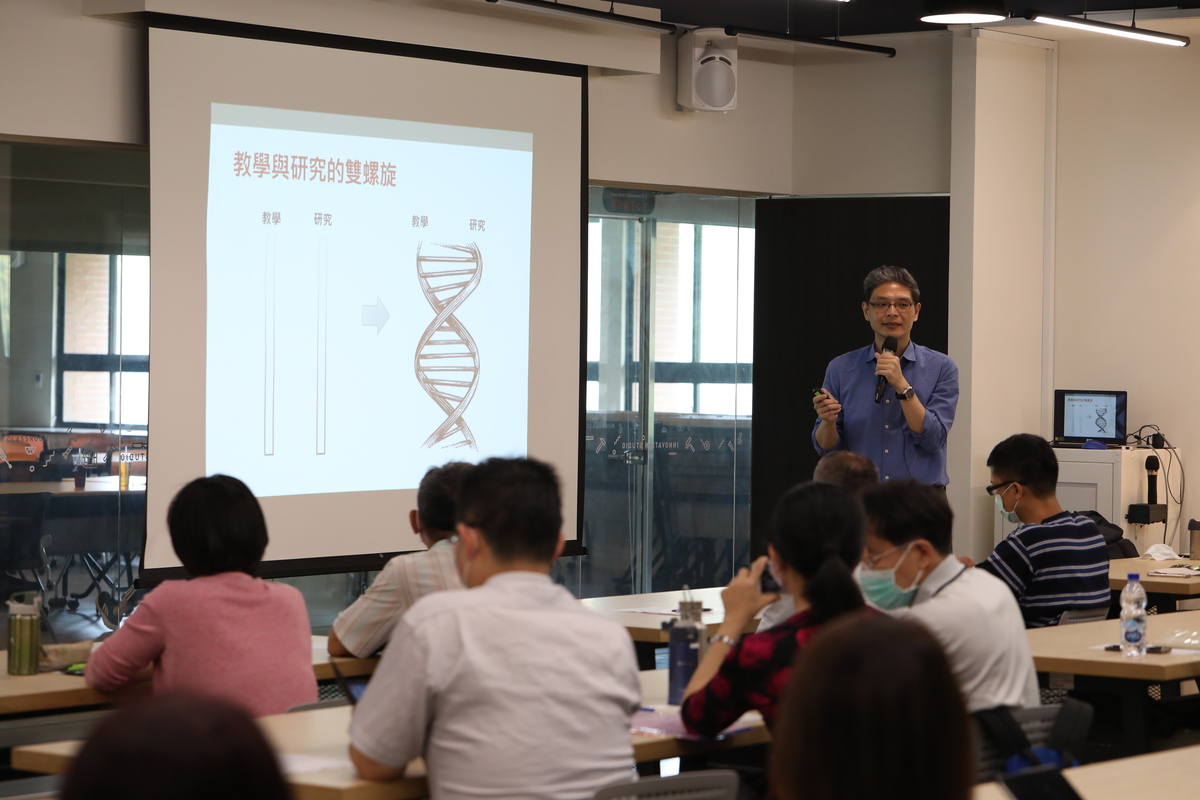Teaching practice research introduced in workshop on education innovation



(Provided by Teaching and Learning Development and Resources Center) To respond to the trends in teaching practice research, the Teaching and Learning Development and Resources Center (TLDRC) at NSYSU invited Distinguished Professor Chun-Ju Huang of the Center for General Education of National Chung Cheng University to lead a workshop on innovative education based on practical research. With the changing of times, teaching practice research is no longer an empty slogan. Director of the TLDRC Tong-Yu Hsieh emphasized that in this innovative workshop, TLDRC hopes to convey new ideas on education and course plans to the academic faculty and search for practical solutions to the identified teaching problems. This can even demonstrate the value of a teacher if teaching practice research can be carried out in the career development of a teacher, he said.
Professor Huang let the participating teachers rethink their direction and provided advice and inspiration for them to apply for the Teaching Practice Research Program (TPRP) of the Ministry of Education (MOE). He said that teaching practice research aims at solving teaching problems, promoting reflection, evaluation, and structuring, and sharing the education results and feedback. The TPRP plays a fundamental role in solving the years-long problems of many university teachers, collecting the best teaching methods from teachers in Taiwan. Some teachers struggle to combine teaching and research because their excellent teaching methods are stifled after completing the project, or because of the pressure for promotion. The TPRP encourages faculty members to incorporate research results into teaching to make the studied topic more interesting and applicable. The integration of teaching and research broadens students’ knowledge, strengthens their adaptability, and nurtures talents.
Distinguished Professor Huang said that problem awareness, understanding the changing of times and generations of students, and the ability to modify the research direction to adjust to the TPRP requirements are vital in teaching practice. The application for MOE’s TPRP does not need to present a glamorous research plan but rather, the research topic is to take teaching as the starting point and the final results are to be applicable in the teaching process; even a great research plan might be rejected if teaching is insignificant in the research topic and process. The TPRP accepts research plans which provide the evidence needed in the teaching process. TPRP emphasized the awareness of dynamic processes and expected research projects to embody the spirit of academic research and take into consideration the perspective of research in various disciplines. Professor Huang emphasized the importance of the co-existence of teaching and research.
Professor Huang shared his personal experience to provide ideas on how to search for research topics in daily life and from students themselves and explained how to draw a course plan to respond to research problems. Instead of just teaching one’s field of expertise, the teacher shall focus on making the students learn, participate, and understand more than just the related fields, as well as reflect on how to use teaching materials for the students to acquire practical abilities that can be applied in real life and at work, and not just collect credits. Professor Huang shared his positive and negative experiences in teaching, and what he learned from them. He engaged in a lively interaction with the participating teachers and gave an in-depth presentation of the most important points to keep in mind when applying for TPRP, as well as discussed teaching practice with the participating teachers to improve their abilities.
(Edited by Public Affairs Division)
Professor Huang let the participating teachers rethink their direction and provided advice and inspiration for them to apply for the Teaching Practice Research Program (TPRP) of the Ministry of Education (MOE). He said that teaching practice research aims at solving teaching problems, promoting reflection, evaluation, and structuring, and sharing the education results and feedback. The TPRP plays a fundamental role in solving the years-long problems of many university teachers, collecting the best teaching methods from teachers in Taiwan. Some teachers struggle to combine teaching and research because their excellent teaching methods are stifled after completing the project, or because of the pressure for promotion. The TPRP encourages faculty members to incorporate research results into teaching to make the studied topic more interesting and applicable. The integration of teaching and research broadens students’ knowledge, strengthens their adaptability, and nurtures talents.
Distinguished Professor Huang said that problem awareness, understanding the changing of times and generations of students, and the ability to modify the research direction to adjust to the TPRP requirements are vital in teaching practice. The application for MOE’s TPRP does not need to present a glamorous research plan but rather, the research topic is to take teaching as the starting point and the final results are to be applicable in the teaching process; even a great research plan might be rejected if teaching is insignificant in the research topic and process. The TPRP accepts research plans which provide the evidence needed in the teaching process. TPRP emphasized the awareness of dynamic processes and expected research projects to embody the spirit of academic research and take into consideration the perspective of research in various disciplines. Professor Huang emphasized the importance of the co-existence of teaching and research.
Professor Huang shared his personal experience to provide ideas on how to search for research topics in daily life and from students themselves and explained how to draw a course plan to respond to research problems. Instead of just teaching one’s field of expertise, the teacher shall focus on making the students learn, participate, and understand more than just the related fields, as well as reflect on how to use teaching materials for the students to acquire practical abilities that can be applied in real life and at work, and not just collect credits. Professor Huang shared his positive and negative experiences in teaching, and what he learned from them. He engaged in a lively interaction with the participating teachers and gave an in-depth presentation of the most important points to keep in mind when applying for TPRP, as well as discussed teaching practice with the participating teachers to improve their abilities.
(Edited by Public Affairs Division)
Click Num:
Share
